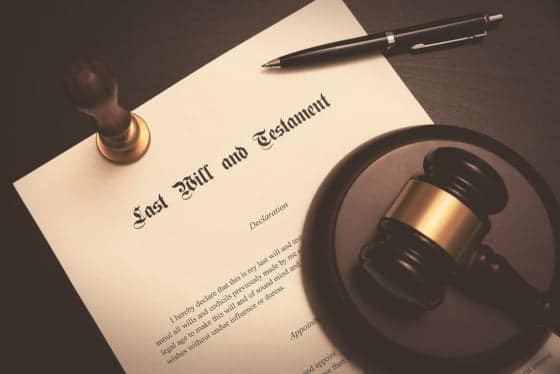As you might imagine, we take making Wills for clients in our stride. We’re trained to ask the right questions and listen carefully to your instructions. When we’ve done that, we then create your Will for your review. We understand how daunting it can be for you when you decide to make your Will.
With that in mind, we thought we’d put together a quick guide to help you get started. Perhaps the biggest hurdle is making the decision to “do it”! Deciding to make your Will is one of the most sensible things you’ll ever do. It gives you and your loved ones peace of mind. They’ll be comforted to know that you’ve decided on who should share in your estate after you’ve gone. What could be more comforting than that?
So, before we start, let’s get something out the way. Your Will should be a straightforward document setting out who you want to share in your estate after you’ve gone. That’s where we’ll start the conversation.
We’ll ask you some questions about the assets you own – do you own a house? Do you have insurance policies and a pension? How about money in the bank or and stocks and shares? You might own some special items of jewellery or, perhaps, even a piece of antique furniture. The list can be long.
This will give us an idea of how you might want to split up your estate and it’ll also alert us to whether you have any potential Inheritance Tax issues that should be addressed.
Do you have any specific things you’d like mentioned in your Will? You’ll tell us if you want to leave any money to charities or other good causes and whether there are any specific items you’d like to leave to individuals.
What happens if I’m not married to my partner?
Usually, if you’re in a relationship, you’ll want to leave your estate to your spouse or partner and, should they pass away before you, to your children. However, with modern families, it’s not always as straight forward as that. You have to be especially careful if you’re living with your partner and are still married or in a civil partnership with a former spouse or partner – or if you have children from a previous relationship. You see, if you’re not married to your current partner, the only way you can make sure he or she inherits your estate is to make a Will – if you don’t, they’ll have to go to court to try to get any share after you’ve passed away.
There are also rights called “Legal Rights” that your children have. This means they have an automatic right to share in your estate. It can be complicated, but we’ll go through all of that with you.
Finally, we’ll discuss what you want to do with the residue of your estate. The residue is the remainder of your estate that isn’t mentioned anywhere else. It’s important we do that to make sure everything is covered.
Who will do all the running around?
Once we’d spoken about who you want to leave everything to, the next important thing to consider it who will look after all the administration of your estate. Usually, we’d recommend your spouse or partner and at least one other person. This can be a child or other relative or even a friend. That person is called your executor and it’s their job to do all the administration of the estate. Usually, your executor will instruct a solicitor to deal with the administration process and we act for many executors every year and help them with the winding up process.
You also get to let people know your wishes are after you’ve gone.
For instance, you might want to let people know about your funeral arrangements. If you have young children, you will probably want to mention how you’d like them looked after and who their guardian should be should you pass away before they become adults.
As you can see, there’s quite a lot to think about and we’ll guide you through every step of the way.
If you have a Will and things have changed, is it still relevant? If you haven’t reviewed your Will for a while and you’ve been through some change in your life, it might be worthwhile checking with us about whether these changes have any impact on what you’ve said in your Will. Reviewing your Will also gives you peace of mind.
So, if you’ve decided to make or review your Will, just give us a call or send us an email and we’ll meet with you and kick off the whole process. We’re happy to come to visit you if you aren’t able to come to our office – just let us know.


